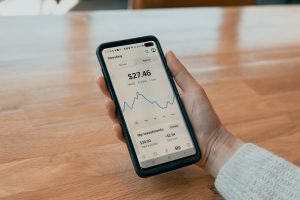CFD, or Contract for Difference, is a popular trading instrument in the forex market that allows traders to speculate on the price movements of various financial assets without actually owning them. CFD trading has become increasingly popular among forex traders due to its many advantages, including high leverage, low costs, and flexible trading options.
In CFD trading, the trader agrees to exchange the difference in price between the opening and closing of a contract with the broker. This means that the trader does not own the underlying asset but rather bets on its price movement. If the price rises, the trader profits; if it falls, the trader incurs a loss.
CFD trading offers traders the ability to trade on margin, which means that they can open positions with a small initial deposit. This allows traders to control larger positions with less capital, resulting in potentially higher profits. However, it also increases the risk of losses as losses are also magnified.
One of the main advantages of CFD trading is the ability to trade both long and short positions. In traditional forex trading, traders can only profit from upward price movements. However, with CFD trading, traders can also profit from downward price movements by taking a short position. This means that traders can potentially profit in any market condition.
CFD trading also offers traders the ability to trade a wide range of financial assets, including forex, stocks, commodities, and indices. This allows traders to diversify their portfolio and take advantage of different market conditions.
Another advantage of CFD trading is the low costs involved. Unlike traditional forex trading, where traders are subject to spreads and commissions, CFD trading only charges a commission on the opening and closing of a position. This makes it an attractive option for traders who are looking to minimize their trading costs.
CFD trading also offers traders the ability to trade using a variety of trading platforms, including desktop, web-based, and mobile platforms. This allows traders to access the market from anywhere and at any time, making it a convenient option for traders who are always on the go.
However, CFD trading also comes with its share of risks. As mentioned earlier, CFD trading involves high leverage, which means that traders can potentially lose more than their initial deposit. This makes it important for traders to have a solid risk management strategy in place to minimize their losses.
Another risk of CFD trading is the counterparty risk. CFD trading involves trading with a broker, and if the broker goes bankrupt, the trader may lose their entire investment. Therefore, it is important to choose a reputable broker with a solid regulatory record.
In conclusion, CFD trading is a popular trading instrument in the forex market that offers traders many advantages, including high leverage, low costs, and flexible trading options. However, it also comes with its share of risks, and traders need to have a solid risk management strategy in place to minimize their losses. As with any form of trading, it is important to do your research and choose a reputable broker with a solid regulatory record.






